NOTE: I wrote an earlier version of this biographical sketch of Dr. Trejo in May, 2014 for the finding aid for the Arnulfo Trejo Papers, MS 515, which are housed in Special Collections at the University of Arizona Library. I updated the bio with photos and additional information in 2020 and posted it as a blog entry. Following the biographical sketch are a couple of articles about Dr. Trejo, including one where I appear on the cover of the REFORMA National newsletter. I wrote a corrido in honor of Dr. Trejo and performed it at a tribute given to him at the American Library Association Midwinter conference in Philadelphia in January, 2003.
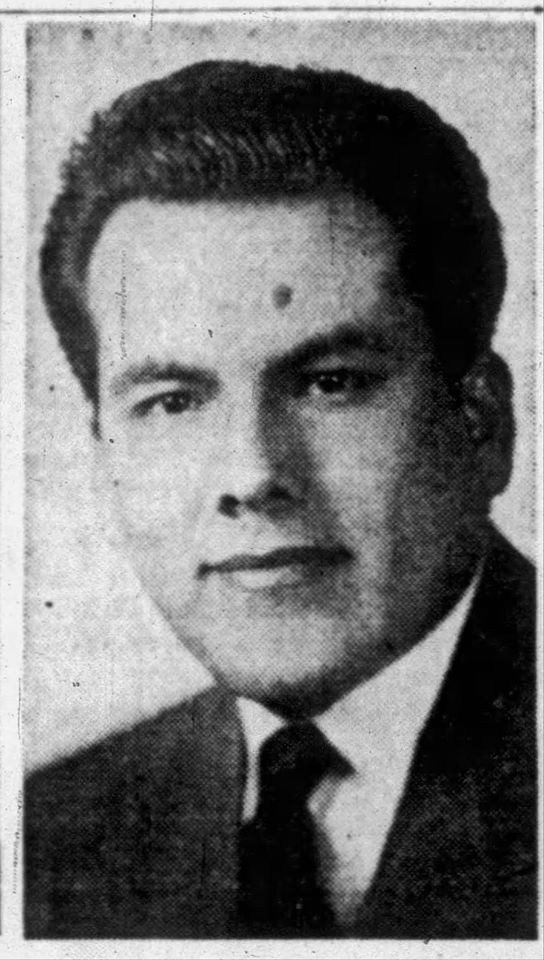
——————–
Arnulfo Duenes Trejo was born in Villa Vicente Guerrero, Durango, Mexico on August 15, 1922. His family immigrated to the U.S. when he was three. He spent his youth growing up in Barrio Libre in Tucson, Arizona, and attended Drachman Elementary, Safford Jr. High and Tucson High School.
Trejo served in the military during World War II, in the 143rd Infanty Division in the South Pacific, reaching the rank of sergeant. He received both the Purple Heart and a Bronze Star medal as well as th Asiatic Pacific Services medal and the Philippine Liberation Ribbon for his service. He became a U.S. citizen while enlisted, in 1944.
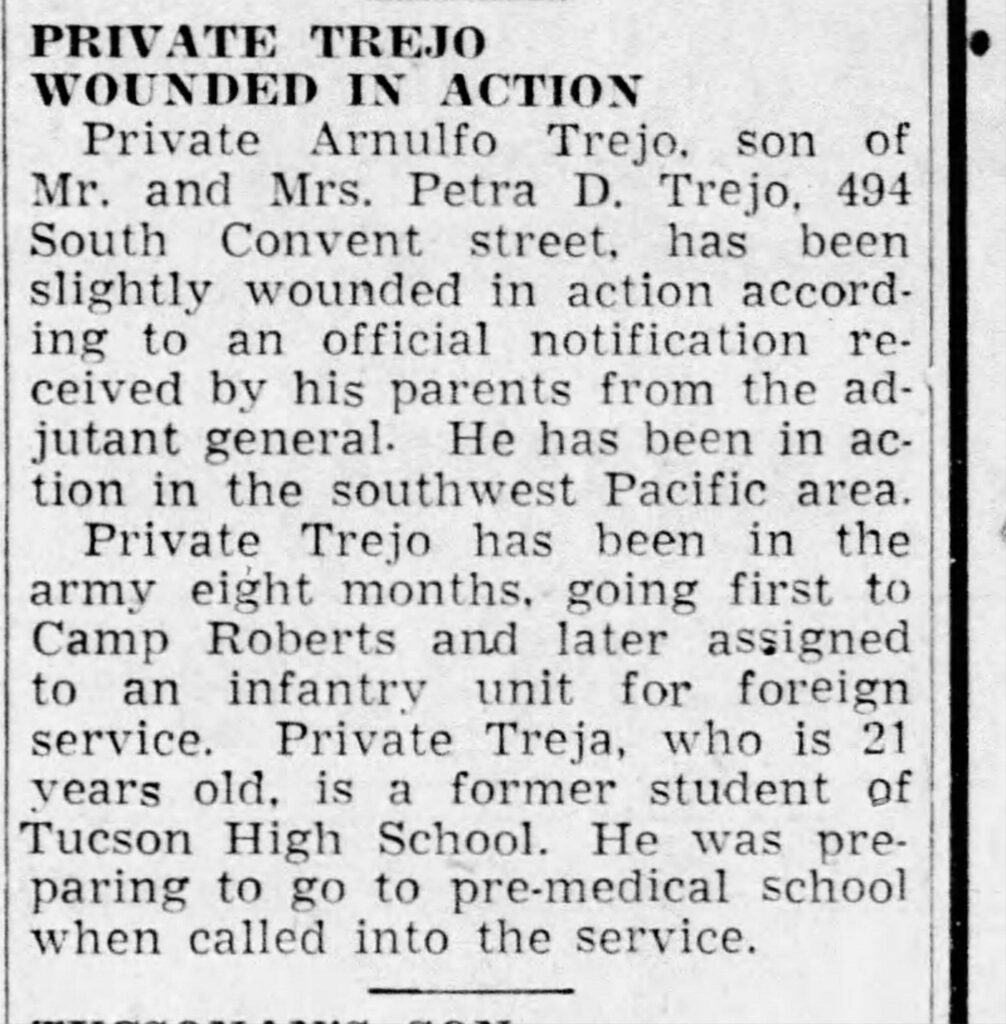
Trejo was an active member of the Tucson community, and participated in a variety of civic and social causes. The following newspaper article describes his early efforts at organizing in the Mexican American community. This is just one example of the leadership role he played in Tucson. In the 1960s and 1970s he continued these efforts by organizing groups that opposed the building of a freeway through the middle of one of the most historic sections of Tucson. His efforts resulted in the saving of the “El Tiradito” shrine, one of Tucson’s most beloved historic landmarks.

After the war, Trejo enrolled at the University of Arizona, where in 1949, he received his B.A. degree in Education. Shortly thereafter, in 1951, he earned an M.A. degree in Spanish Language and Literature from La Universidad de las Americas in Mexico City. By 1953, Trejo had also received a M.A. in Library Science from Kent State University.
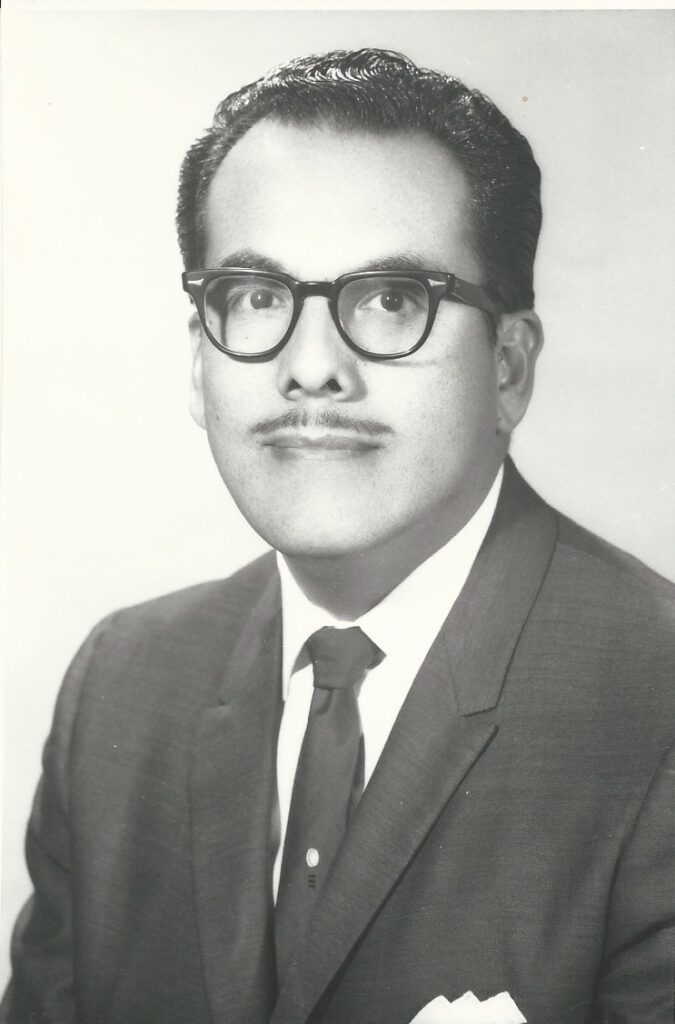
Trejo began his career as a librarian in Mexico in 1953. By 1955, he landed a position at UCLA as a reference librarian, followed by a four year stint as Assistant College Librarian at California State College at Long Beach. He also spent time directing the library for Stanford University’s Escuela de Administracion de Negocios para Graduados in Lima Peru. Upon his return to the United States, he worked for two years as Assistant Professor of Library Service at UCLA.
In 1959, he received his Doctor of Letters degree (with honors) from the National University of Mexico.
In 1966, Dr. Trejo was hired by the University of Arizona, where he served as Associate Professor of Library Science and Bibliographer for Latin American Collections.
Upon his return to the University of Arizona, Dr. Trejo spent time teaching a course in Mexican American literature. He was also a founding faculty member of the Graduate Library School, where he began teaching courses in Latin American Bibliography in 1970.
According to the Arizona Daily Star (2-3-67) in 1967, Dr. Trejo published the following guide:
In 1968, he took a yearlong leave of absence to serve as a consultant for United States Agency for International Development (USAID) in Caracas, Venezuela. His connections to libraries and scholars in Latin America proved beneficial to the University of Arizona, as he helped build one of the richest collections of Latin American materials in the country.
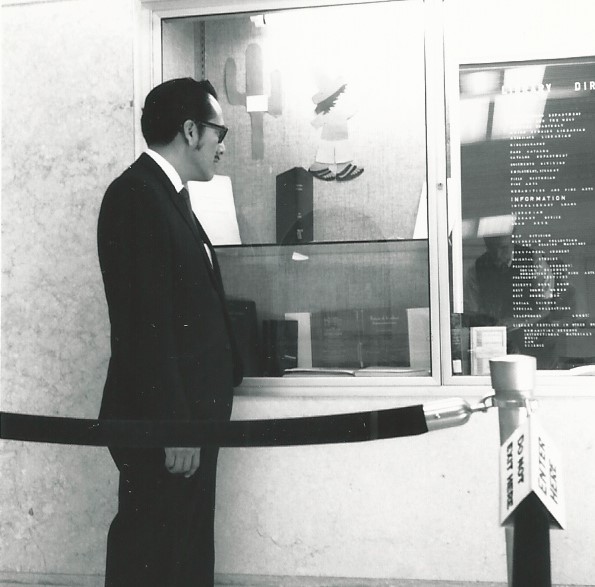
Dr. Trejo kept quite busy in the early 1970’s, both as an academic and as an activist. He was instrumental in organizing a community effort to save a downtown monument called “El Tiradito”, or the Wishing Shrine, from being torn down to make way for a new freeway. Trejo’s efforts helped place the shrine on the National Register of Historic Places in 1971. He remained active as a member of Los Tucsonenses, a community organization dedicated to preserving local Latino culture, throughout the 1970s.
In 1973, Dr. Trejo gave a talk at an early meeting of REFORMA on library services for Chicanos. California State University at Fullerton has generously made the filming of that talk available through the Internet Archive. To hear this talk, click here.
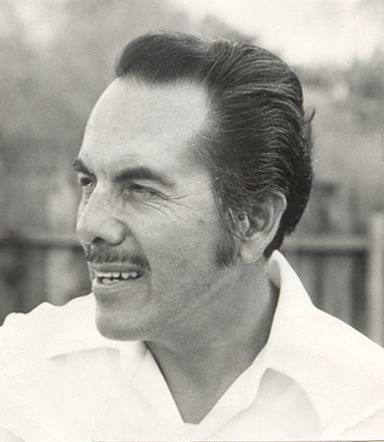
Throughout his life he accomplished many things, but was best known for having founded REFORMA, The National Assocation for the Promotion of Library Services to the Spanish Speaking in 1971, and for creating the Graduate Library Institute for Spanish Speaking Americans at the University of Arizona’s Graduate Library School. Latino librarians throughout the country agree that Trejo was the “father of Latino librarianship.” His legacy is a rich one and his admirers are many.
Trejo founded REFORMA, the National Association of Spanish Speaking Librarians in the United States in 1971, and served as its president from 1971-1974. The organization is still in operation, and its purpose is to, among other things, provide a means for bilingual librarians to network with each other, to promote the collection of Spanish-language materials in libraries, to advocate for the recruitment of Latinos to librarianship, and to provide programming that benefits the Latino community. The organization now has chapters in every corner of the US as well as in Puerto Rico and is now called, REFORMA: The National Asssociation for the Promotion of Library and Information Services to Latinos and the Spanish Speaking

In 1975, Trejo organized and administered the Graduate Library Institute for Spanish Speaking Americans (GLISA) a federally funded project that operated for four years under his direction. 56 individuals earned their master’s degrees in library science through this program. Many of these graduates went on to become directors of major library systems. Today’s Spectrum Scholar’s program, an American Library Association sponsored project, and the University of Arizona’s Knowledge River program were both modeled after GLISA.
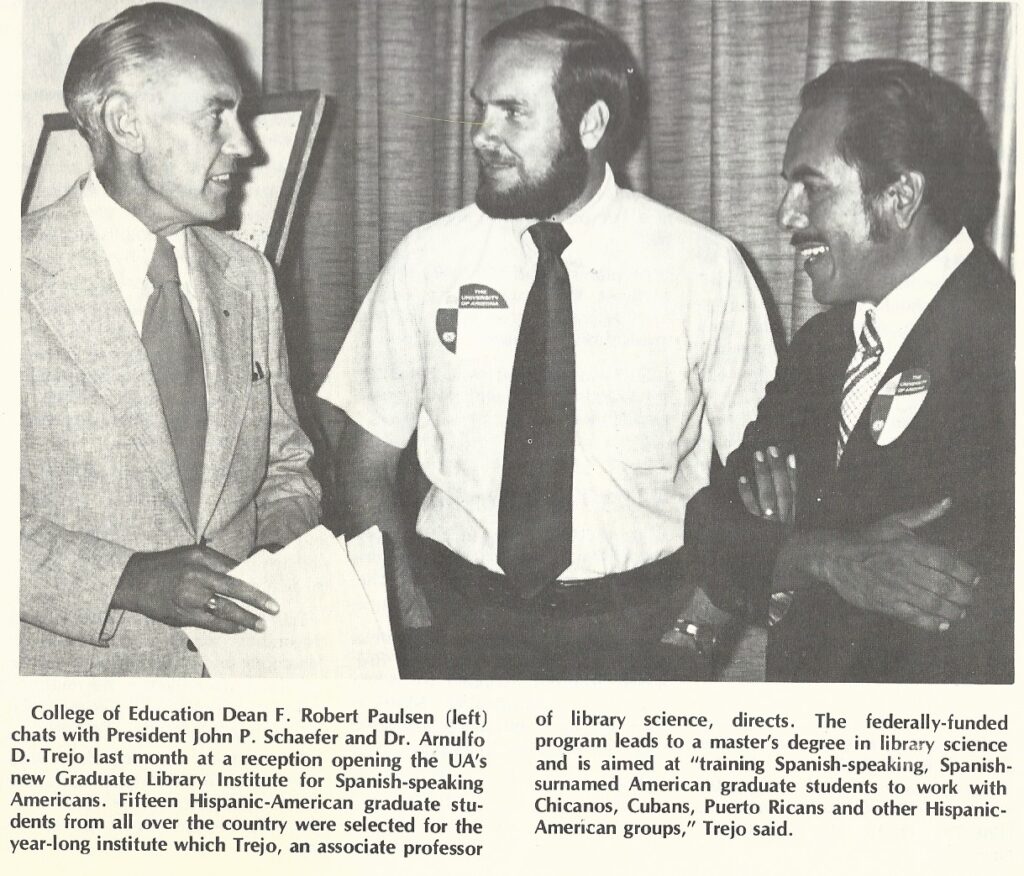
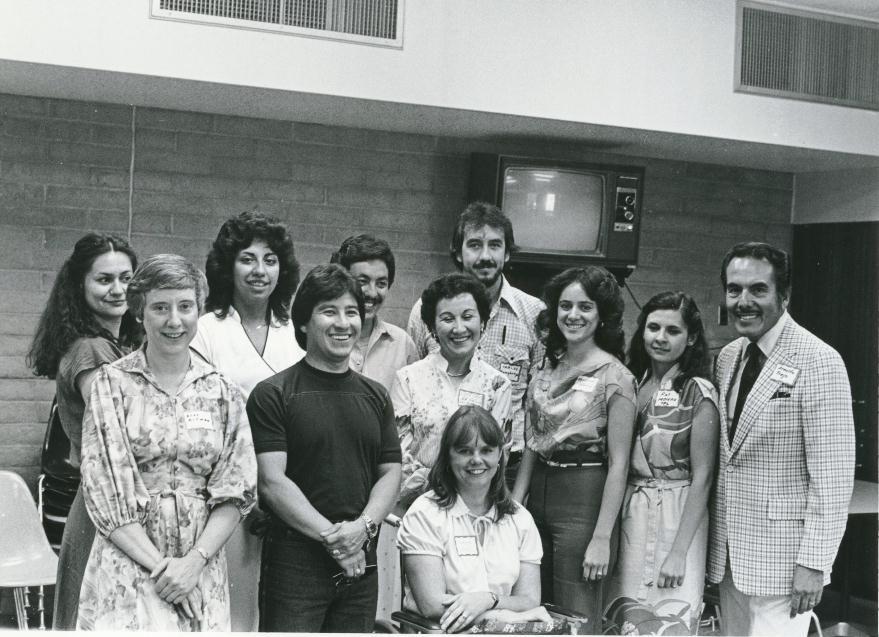
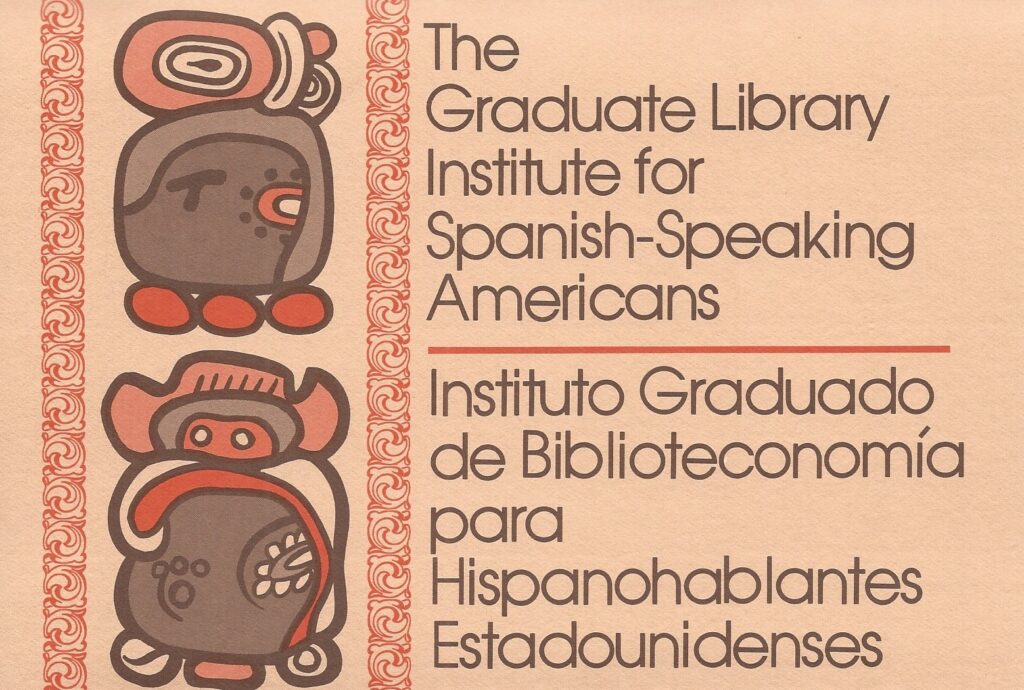
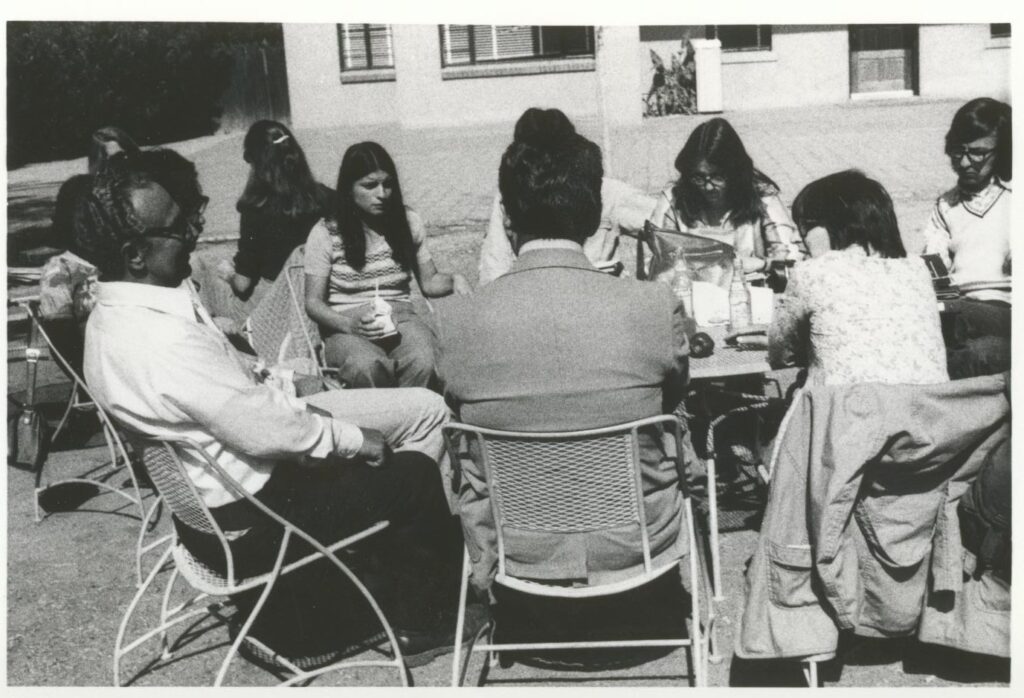
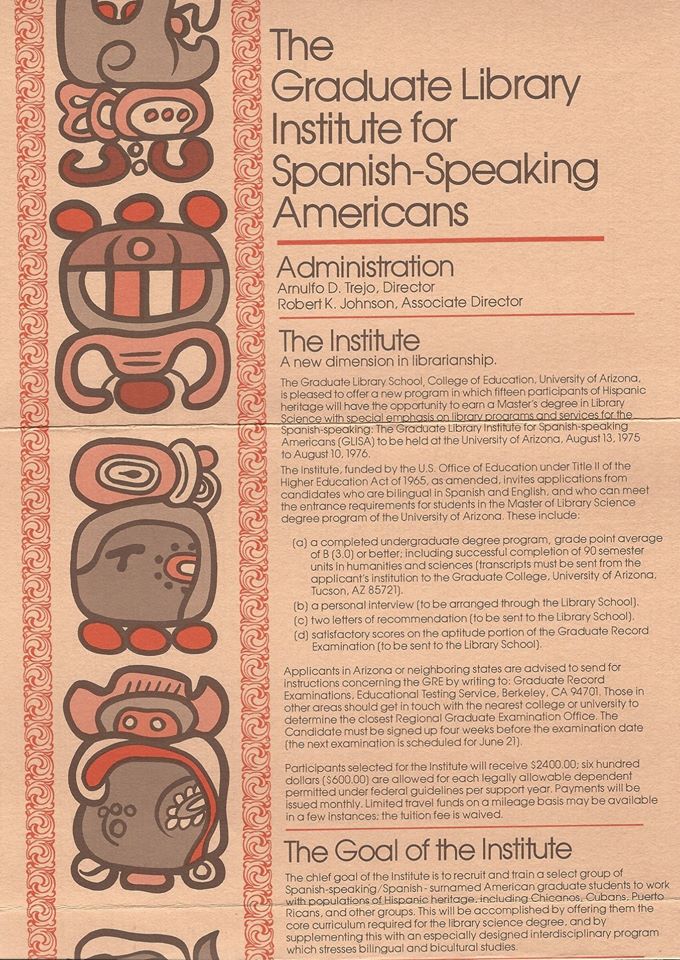
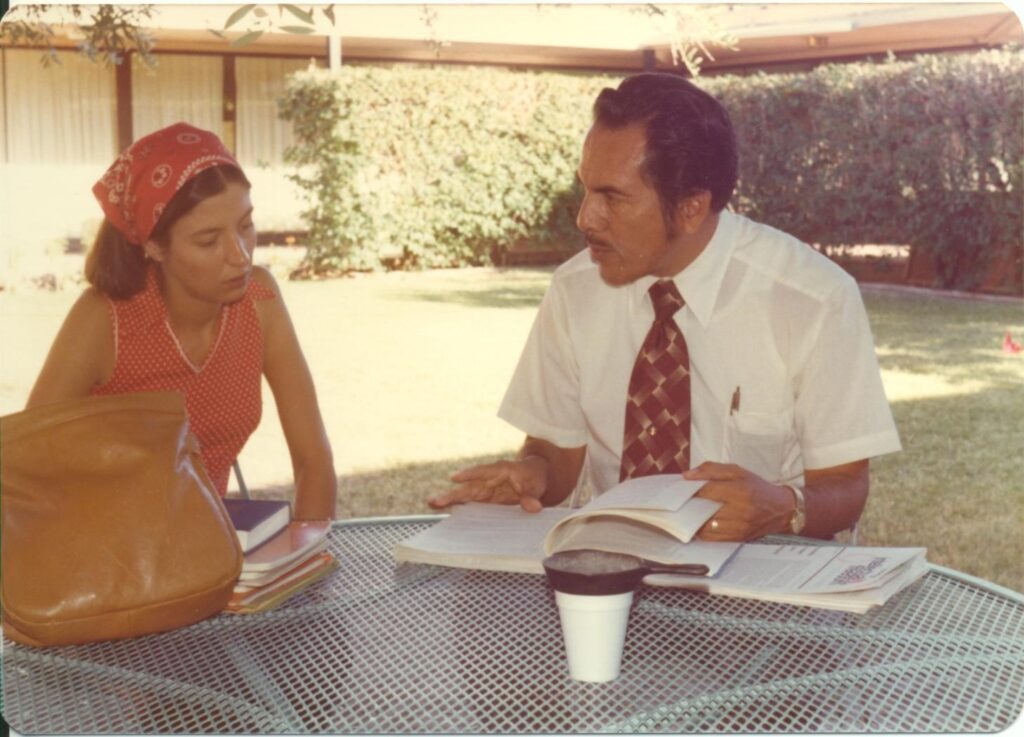
The University of Arizona Library houses copies of various reports generated during the GLISA Program. Below are copies of these reports:
GLISA-III-First-Quarterly-Report-11-15-78
GLISA-III-2nd-Quarterly-Report-2-15-79
GLISA-III-3rd-Quarterly-Report-5-15-79
GLISA-III-Final-Report-10-25-79
GLISA-IV-Third-Quarterly-Report-6-13-80
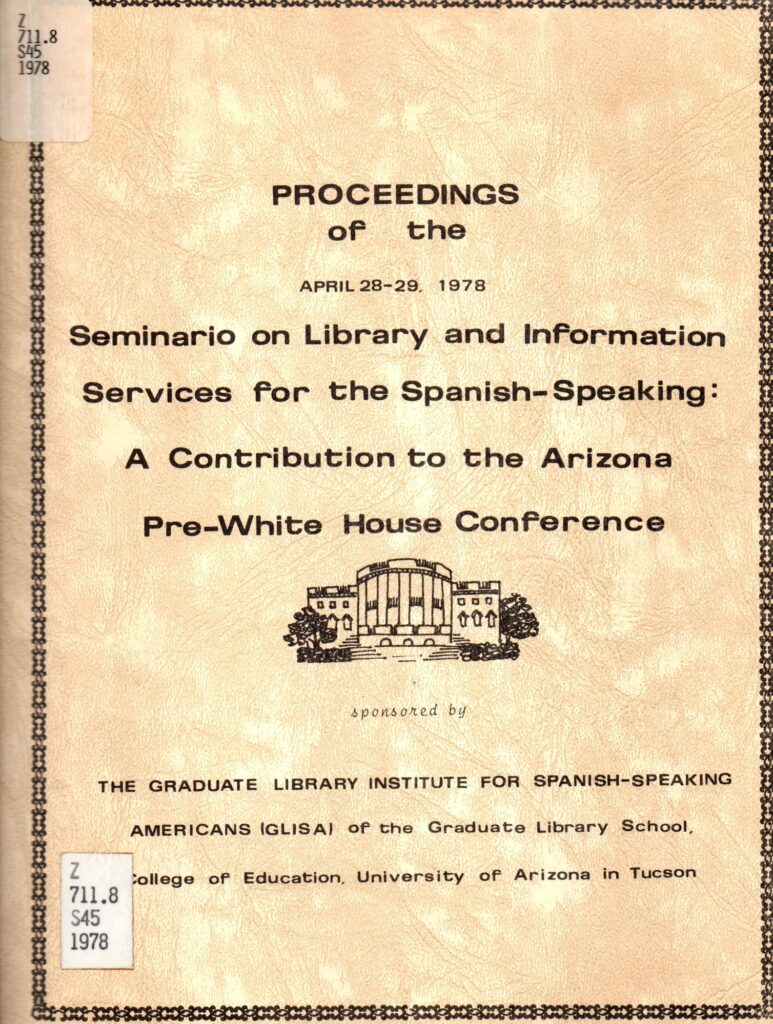
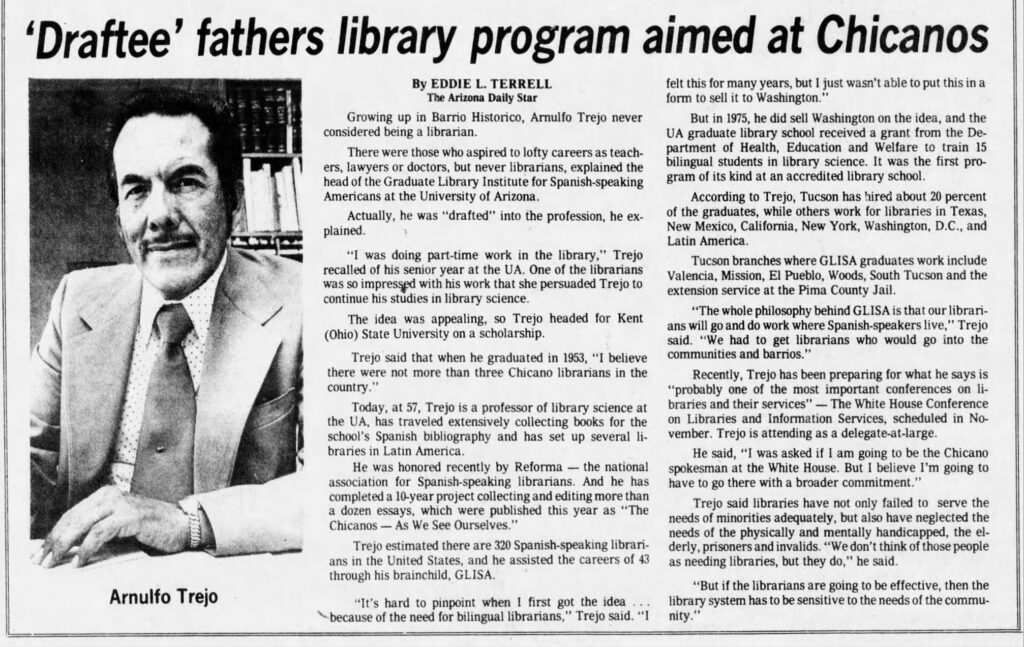
In 1980, Dr. Trejo opened Hispanic Book Distributors, a book vending company specializing in books from the Spanish Speaking world, and dedicated to increasing the availability of Spanish language materials in U.S. libraries. Dr. Trejo particularly enjoyed making regular buying trips to Mexico, Spain and Argentina, and his materials were sold to public, school and academic libraries across the country.
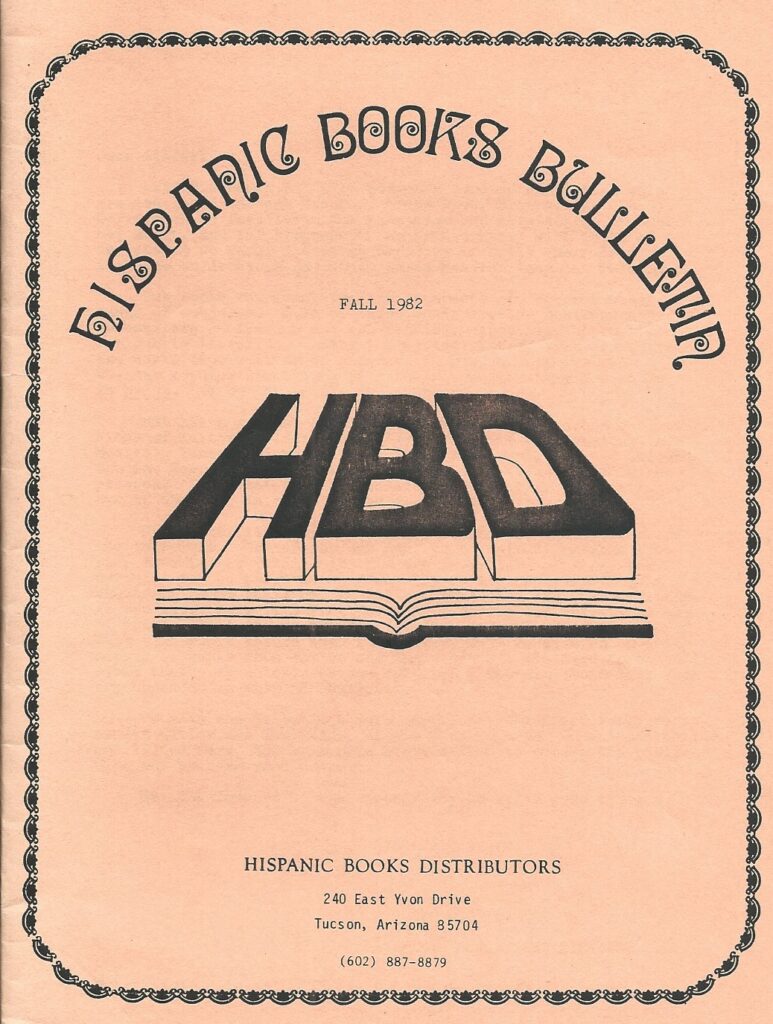
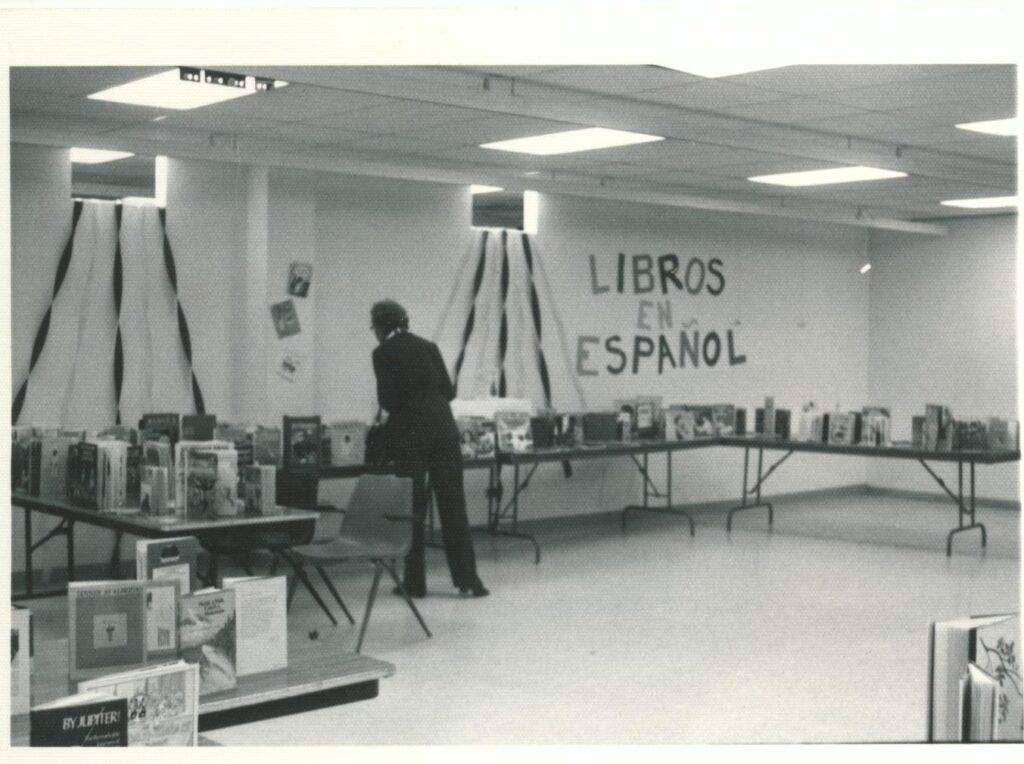
Trejo retired from the University of Arizona Graduate Library School in 1984, a full professor, with a long list of accomplishments and publications.
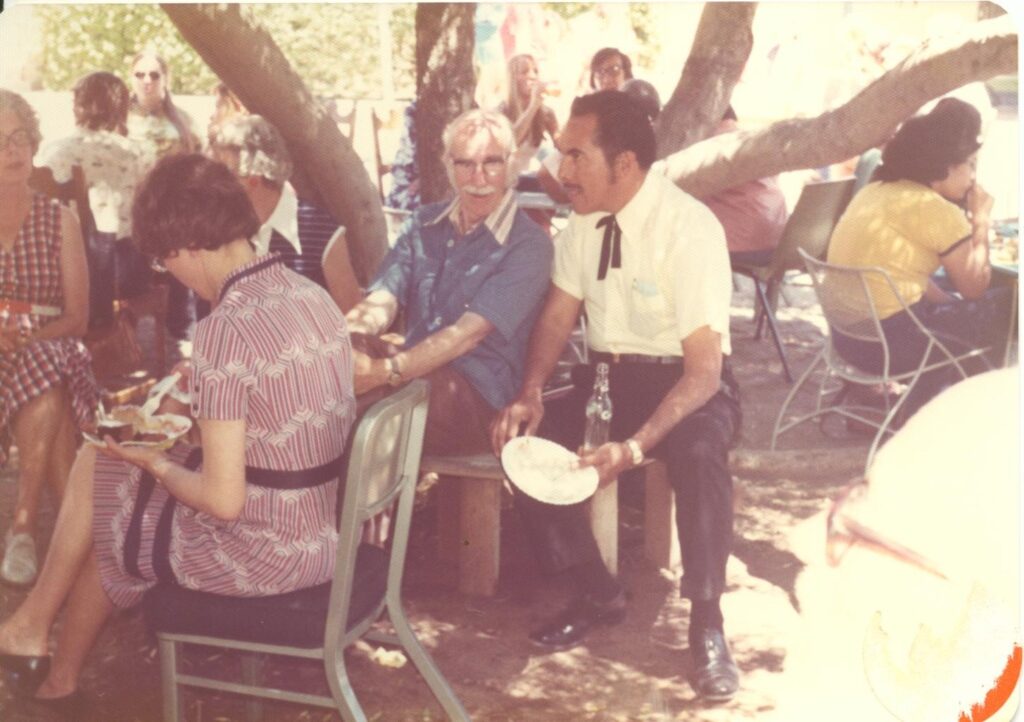

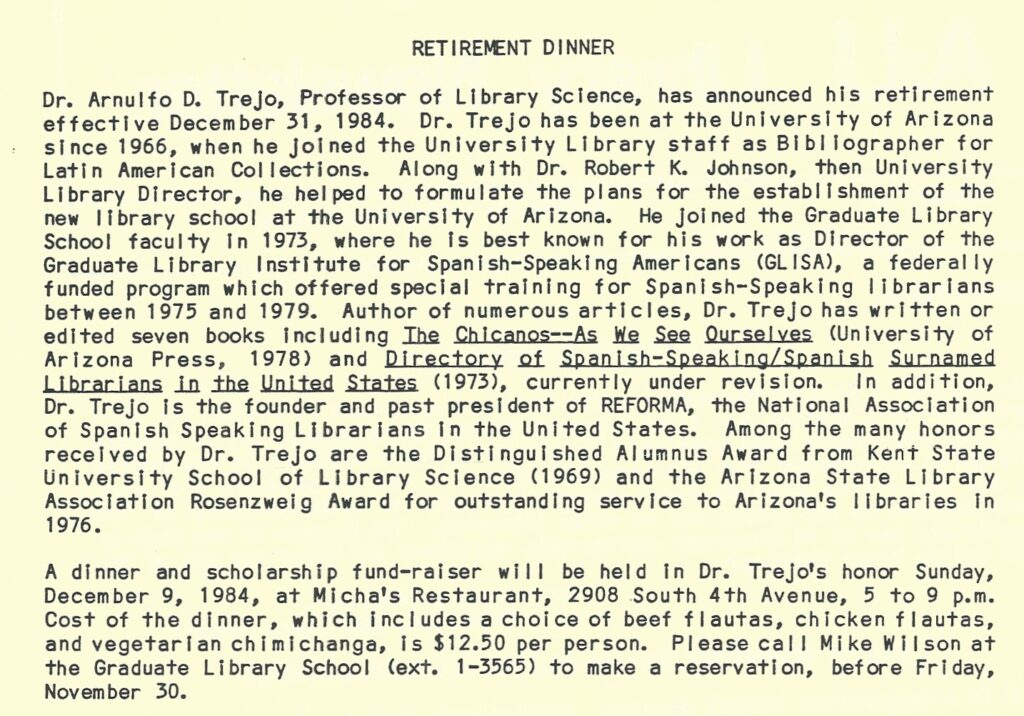
In 1992, after the death of his second wife Annette M. Foster, Dr. Trejo founded the Trejo-Foster Foundation for Library Education, where he was able to continue to influence the library profession by providing educational institutes focused on library services to Latinos and the Spanish speaking.
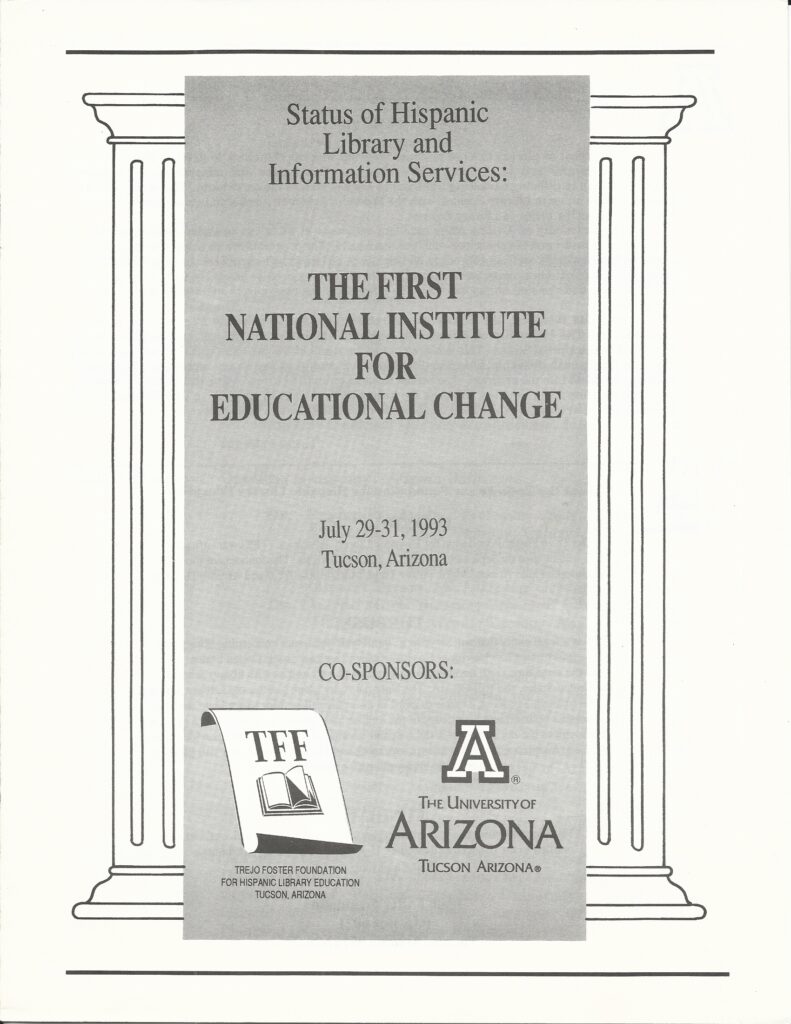
To see the full program, as well as more photos and information about this institute, see my blog post, titled, Status of Hispanic Library and Information Services : A National Institute for Educational Change, July 29-31, 1993
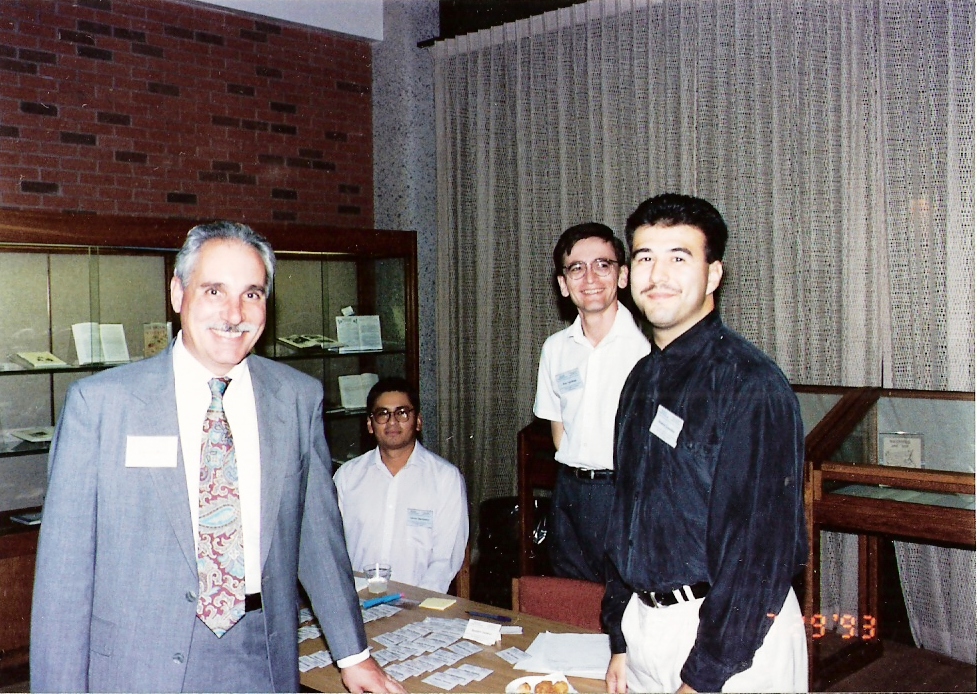
Trejo died in Tucson, Arizona in 2002, at the age of 79.
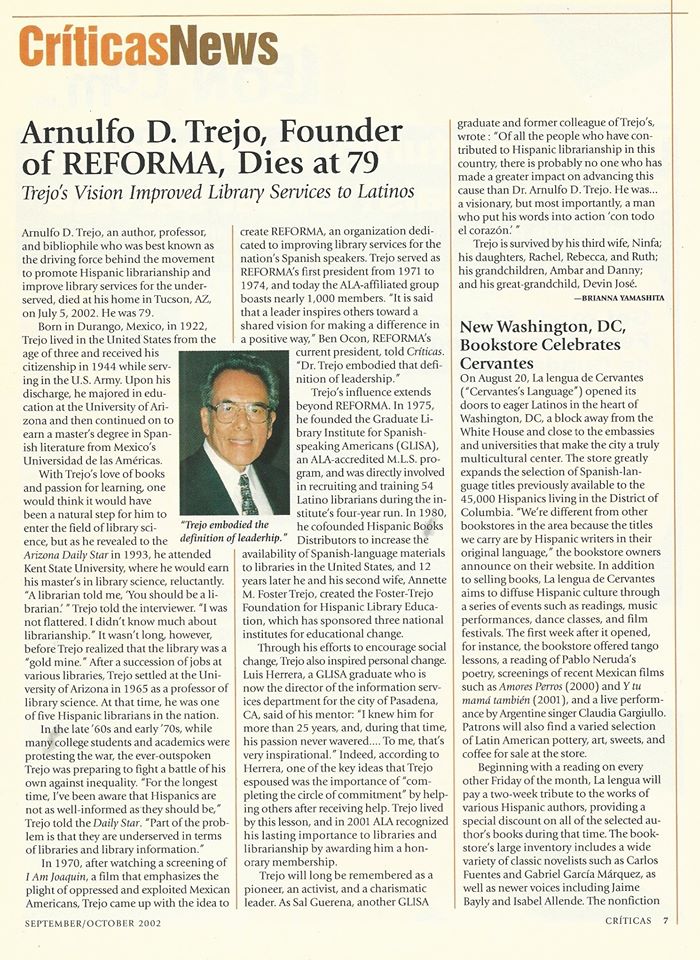
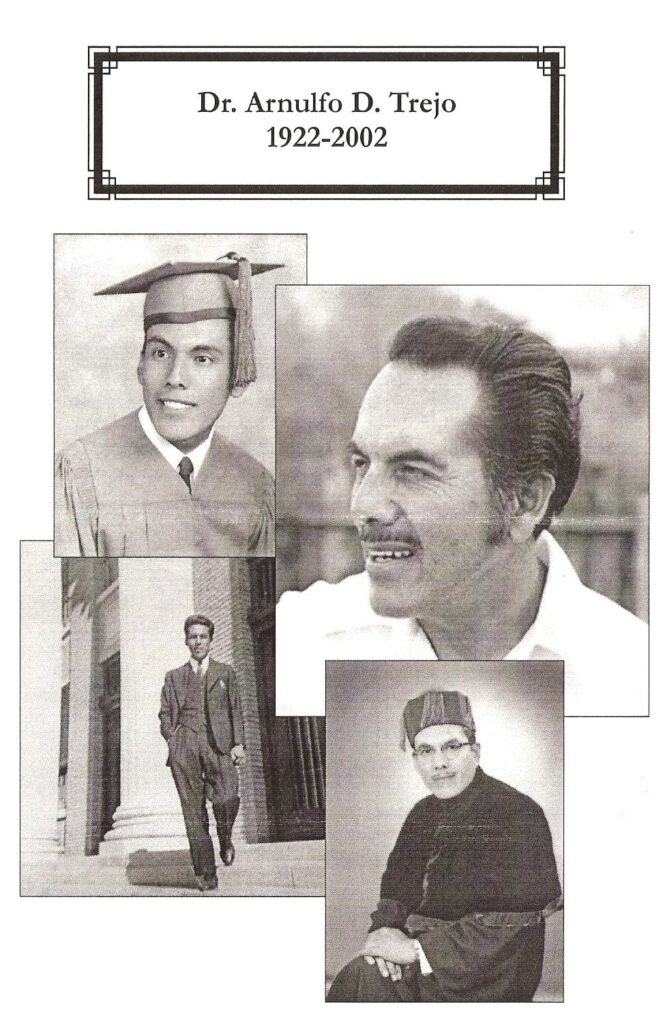
Among Trejo’s publications they include: Bibliografia Chicana: A Guide to Information Resources, Gale, 1975, The Chicanos: As We See Ourselves, University of Arizona Press, 1979, (Trejo was editor), and Quien Es Quien: a who’s who of Spanish-speaking librarians in the United States, Hispanic Book Distributors, 1994.
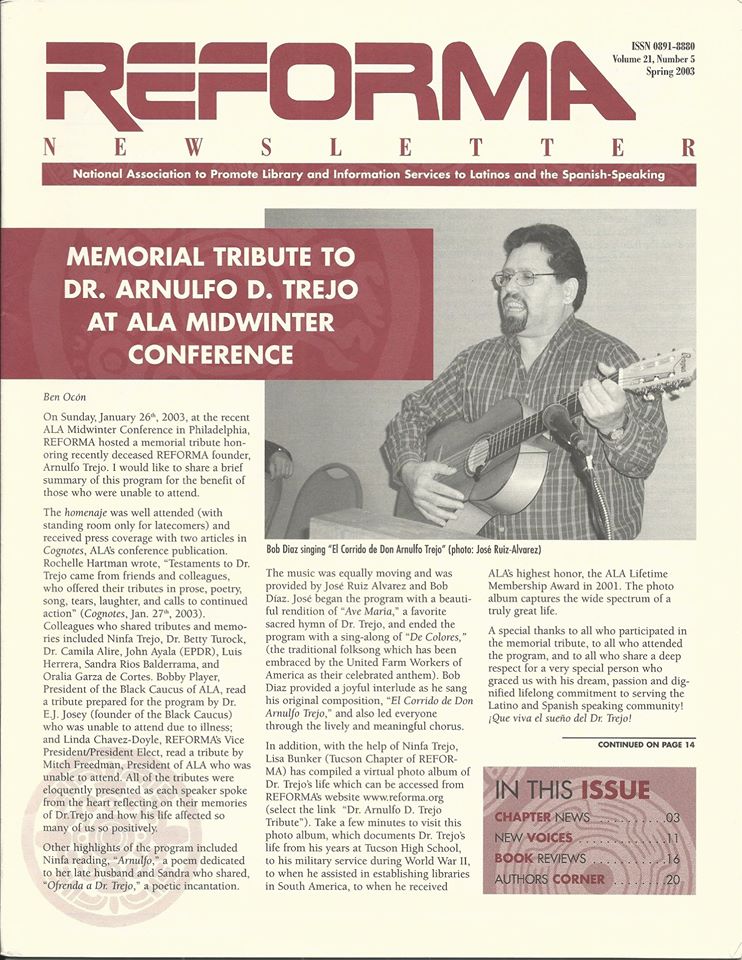
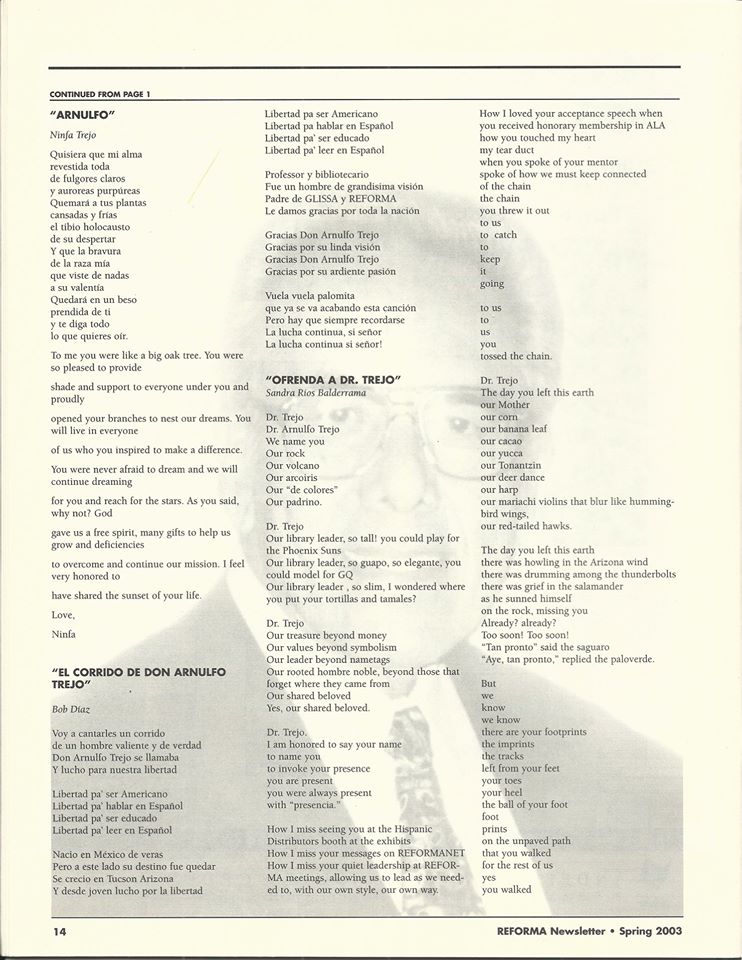
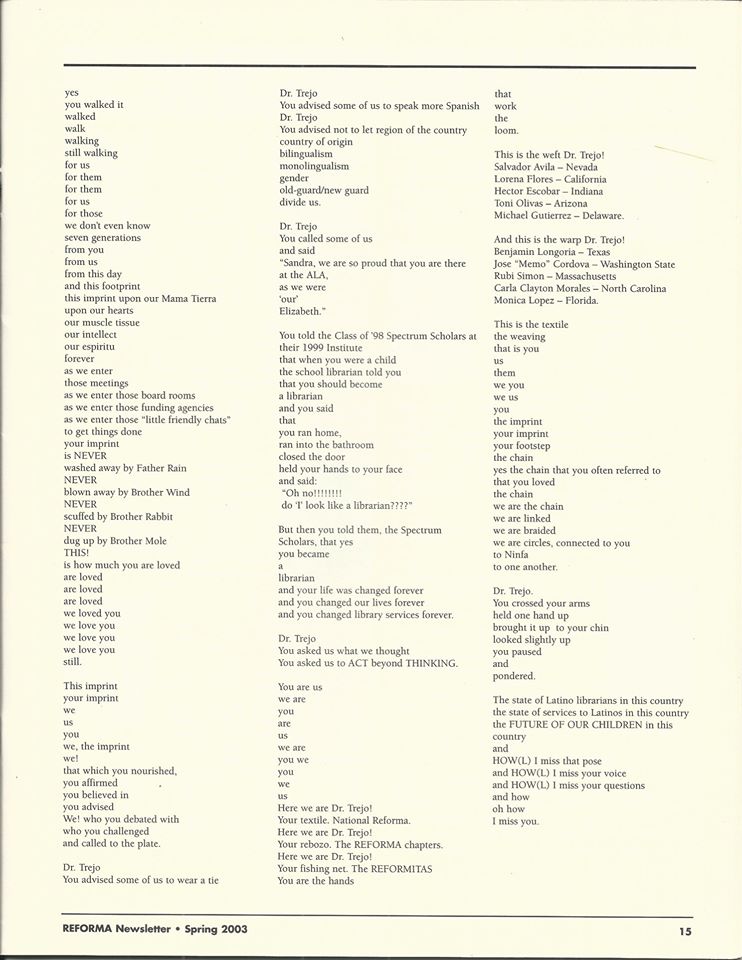
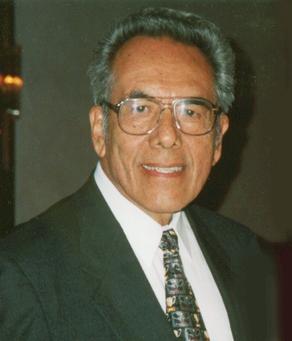
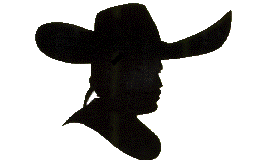

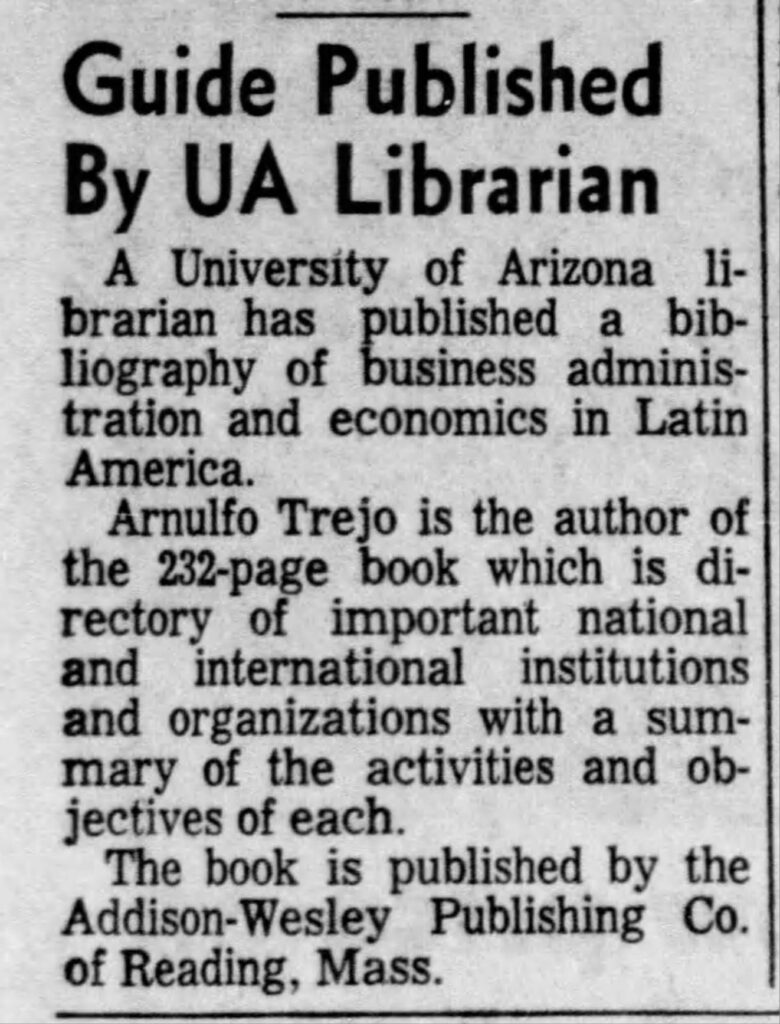
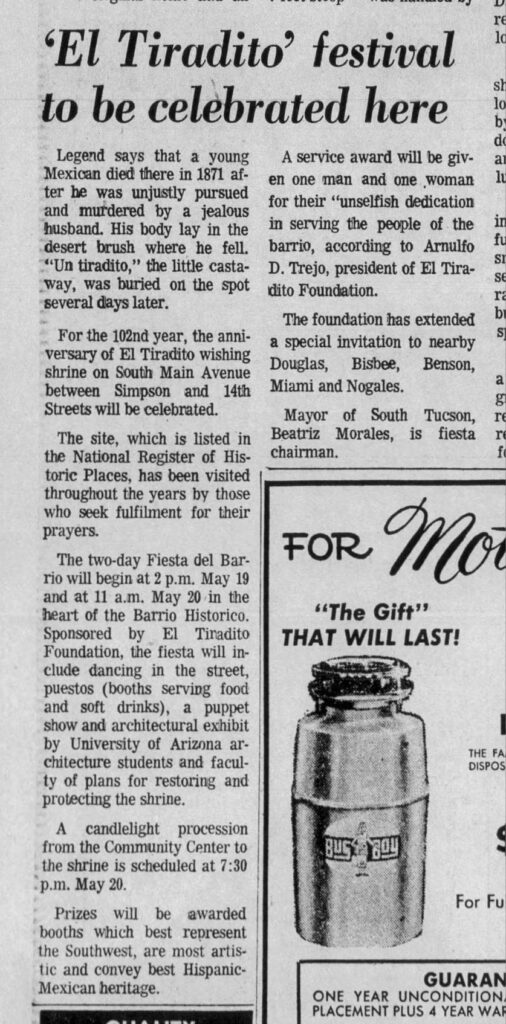
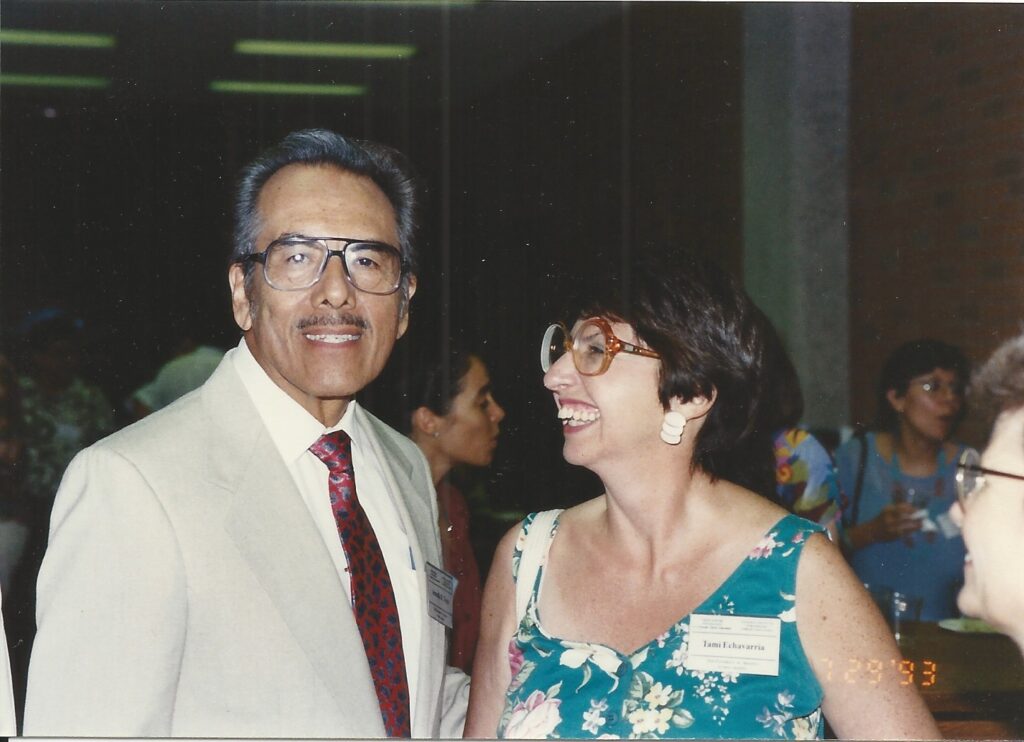
This is a wonderful tribute to Dr. Trejo. It jettisoned me back to many memories and reminded me of things about GLISA that I had forgotten.